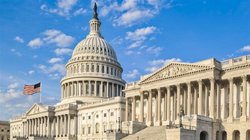 The Trump administration is snubbing Congress by refusing to turn over a report detailing an investigation into national security risks potentially posed by imported vehicles and auto parts, citing pending international negotiations and executive branch deliberations.
The Trump administration is snubbing Congress by refusing to turn over a report detailing an investigation into national security risks potentially posed by imported vehicles and auto parts, citing pending international negotiations and executive branch deliberations. RNA - Congress inserted a provision in a spending bill last month demanding the White House turn over the long-secret government report that US President Donald Trump used to declare in May 2019 that some unnamed imported autos pose risks to national security.
Trump opted not to impose any immediate tariffs on imported cars or auto parts because of the alleged security threat and then ordered another six-month review on a decision on tariffs of up to 25%.
The delay was to allow for more time for trade talks with the European Union and Japan.
On Tuesday, Trump said he was still considering imposing tariffs and mentioned imported European vehicles in particular, without singling out any brands.
"We expect to be able to make a deal with Europe. And if they don't make a deal, we'll certainly give that very strong consideration," Trump said. "But if we're unable to make a deal, we will have to do something."
A person briefed on the matter said Trump had relied on a Justice Department opinion to order Commerce not to turn over the report under a Section 232 investigation.
The Commerce Department said in a statement it was "not releasing the 232 autos report because releasing it now would interfere with the President’s ability to protect confidential executive branch communications and could interfere with ongoing negotiations."
Senator Pat Toomey, a Republican, blasted the decision saying "by refusing to make public the statutorily-required report on automobile tariffs, the Department of commerce is willfully violating federal law." Toomey said he was "evaluating the potential for corrective action to compel the rightful release of this report."
The Justice Department opinion said Trump was justified in "withholding the report until the resolution of diplomatic negotiations" and any subsequent action.
Some US lawmakers want to restrict presidential authority to invoke the tariffs on national security grounds.
In May, Trump said he agreed with the undisclosed report's finding that found some imported cars and trucks were "weakening our internal economy" and threatened to harm US national security.
But automakers have warned tariffs would cost hundreds of thousands of auto jobs, dramatically raise prices on vehicles and threaten industry spending on self-driving cars.
A group representing major German and Asian automakers including Volkswagen AG and Nissan Motor Co, called the suggestion some auto imports pose a national security risk "absurd."
Toyota Motor Corp in May called Trump's designation of a national security threat "a major set-back for American consumers, workers and the auto industry."
Source: Reuters
847/940